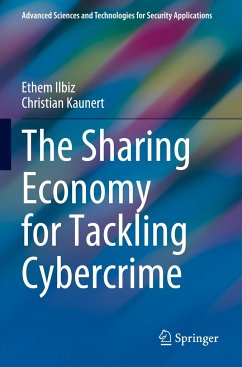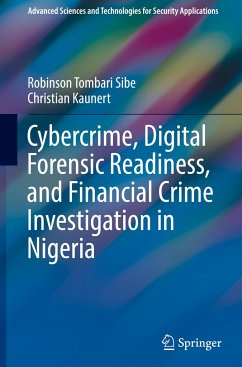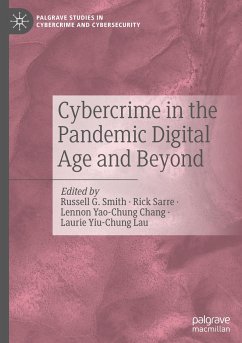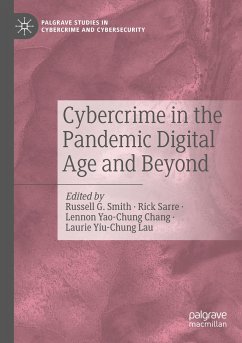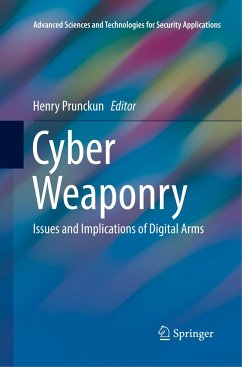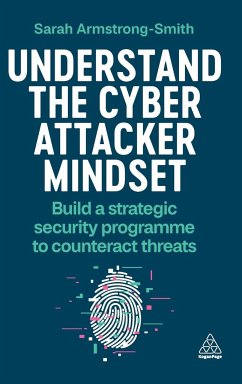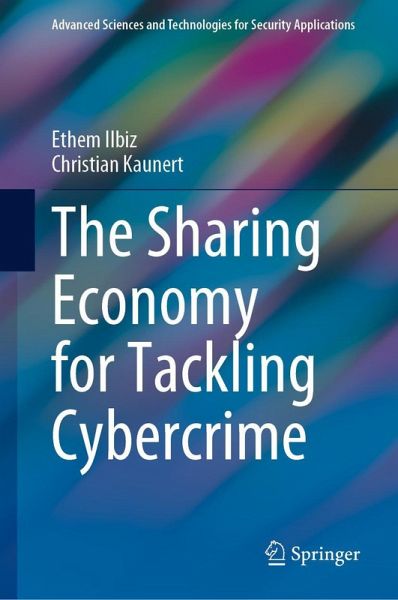
The Sharing Economy for Tackling Cybercrime
Versandkostenfrei!
Versandfertig in 6-10 Tagen
98,99 €
inkl. MwSt.
Weitere Ausgaben:

PAYBACK Punkte
49 °P sammeln!
This book explains Europol's online sharing platforms efforts in three major cybercrime areas: ransomware, money laundering with cryptocurrencies, and online child sexual exploitation that Europol has already pushed private and public actors to cooperate.Since the global financial crisis, online sharing economy platforms have made a significant impact on use of under-utilized resources. People who have a car (Uber) or a spare room (Airbnb) began to share their under-used assets with others for extra income. The success achieved by these online platforms that enable efficient use of limited res...
This book explains Europol's online sharing platforms efforts in three major cybercrime areas: ransomware, money laundering with cryptocurrencies, and online child sexual exploitation that Europol has already pushed private and public actors to cooperate.
Since the global financial crisis, online sharing economy platforms have made a significant impact on use of under-utilized resources. People who have a car (Uber) or a spare room (Airbnb) began to share their under-used assets with others for extra income. The success achieved by these online platforms that enable efficient use of limited resources raised a new discussion on whether a similar governance model can be implemented by public administrations where public resources are insufficient. Cybercrime is one of these fields where most law enforcement agencies have not got enough resources to tackle these crimes. They need the human and technical resources of the private sector for a safer society. This book, for the first time, seeks the answers to this question. It examines the feasibility of online sharing economy platforms to enhance public-private partnerships to tackle cybercrime. The European Union Policing Agency, Europol, is the first police organization to adopt a similar model to interact with policing agencies and private industry.
Drawing on extensive research, the book offers crucial insights for policymakers, researchers, and the public interested in new trends in sharing economy, innovative governance models, public-private partnerships, and cybercrime investigations.
Since the global financial crisis, online sharing economy platforms have made a significant impact on use of under-utilized resources. People who have a car (Uber) or a spare room (Airbnb) began to share their under-used assets with others for extra income. The success achieved by these online platforms that enable efficient use of limited resources raised a new discussion on whether a similar governance model can be implemented by public administrations where public resources are insufficient. Cybercrime is one of these fields where most law enforcement agencies have not got enough resources to tackle these crimes. They need the human and technical resources of the private sector for a safer society. This book, for the first time, seeks the answers to this question. It examines the feasibility of online sharing economy platforms to enhance public-private partnerships to tackle cybercrime. The European Union Policing Agency, Europol, is the first police organization to adopt a similar model to interact with policing agencies and private industry.
Drawing on extensive research, the book offers crucial insights for policymakers, researchers, and the public interested in new trends in sharing economy, innovative governance models, public-private partnerships, and cybercrime investigations.





